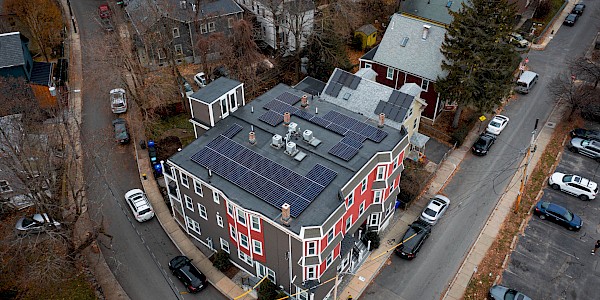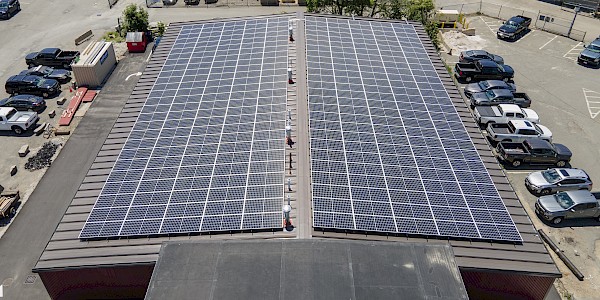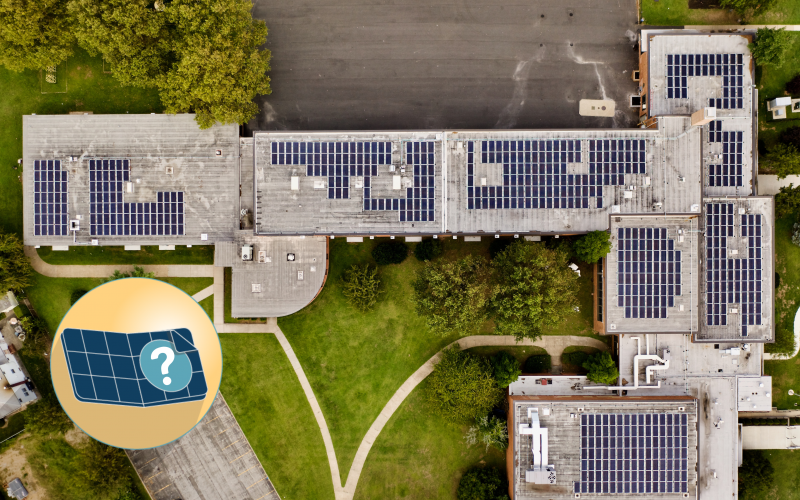Can I Write Off Solar Panels for My Business?
Feb. 22, 2023
Disclaimer: This material has been prepared for informational purposes only. It is subject to change and should not be relied on for tax or financial advice of any kind. You should always consult with your own tax advisors before making purchasing, investment, or tax decisions.
Going solar can save your business a lot of money over the long term by reducing or even eliminating your electricity costs. But installing a commercial solar array typically requires a large upfront payment. To ease the burden, the federal government offers tax incentives that can help make commercial solar panel installation financially viable for your business.
Commercial solar installations are often classified as a business expense, which means you may be able to write solar panels off on your taxes. But a commercial solar panel tax write-off isn’t the only tax benefit of commercial solar installation—commercial solar panels also qualify for a federal tax credit and MACRS depreciation.
In this guide, we’ll cover what solar tax incentives there are for businesses and how you can take advantage of them.
Federal Solar Tax Credit for Commercial Solar Installation
The federal solar tax credit, also known as the solar Investment Tax Credit (ITC), is a commercial solar incentive that reduces your federal income tax liability by a percentage of your solar installation costs. The federal solar tax credit in 2023 is worth 30% of your solar installation costs and will be available from 2022 until 2032.
The tax credit has been in effect for many years but was recently expanded by the Inflation Reduction Act. Because of this, you may hear it referred to as the Inflation Reduction Act solar tax credit.
Learn more about what the Inflation Reduction Act means for commercial solar installations.
Eligibility Requirements for the Commercial Solar Tax Credit
Commercial entities must meet the following criteria to qualify for the solar panel federal tax credit in 2023:
- The solar PV system must be used by a business that is required to remit federal income tax (tax-exempt entities may qualify for a direct-pay option)
- The solar system must be located at a business in the United States
- The system must be built from primarily new equipment
- The system must be purchased with cash or financed (leases and power purchase agreements do not qualify)
Claiming the Commercial Solar Tax Credit
To claim the Inflation Reduction Act solar panel tax credit, a business must file IRS Form 3468 with its annual tax return. To be eligible for the credit in a given year, a business must have commenced construction of its solar PV system before year-end.
MACRS Depreciation for Commercial Solar Panel Installation
Most commercial solar installations are eligible for the Modified Accelerated Cost Recovery System (MACRS). MACRS is a depreciation system that was designed to help businesses recover their investments in certain tangible assets through annual deductions over a specified period of time. Qualifying commercial solar energy equipment is eligible for a cost recovery period of 5 years.
For commercial solar equipment on which the solar tax credit is claimed, the business must reduce the project’s depreciable basis by one-half the value of the 30% tax credit. This means the business is able to deduct 85% of its tax basis.
Boston Solar Is the #1 Commercial Solar Company in Massachusetts
Have questions about commercial solar energy tax write-offs and incentives? Boston Solar is here to help. We are the leading commercial solar installer near you in Massachusetts with over 10 years of experience installing solar energy systems. We install custom-built commercial solar systems of all sizes and can recommend the best solar panels and products for your business.
Don’t miss out on solar tax benefits! Call 617-858-1645 or contact us to schedule a solar consultation.




